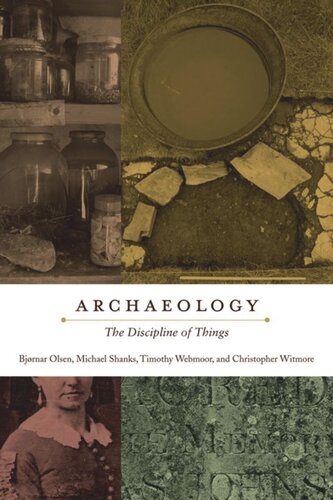

Most ebook files are in PDF format, so you can easily read them using various software such as Foxit Reader or directly on the Google Chrome browser.
Some ebook files are released by publishers in other formats such as .awz, .mobi, .epub, .fb2, etc. You may need to install specific software to read these formats on mobile/PC, such as Calibre.
Please read the tutorial at this link: https://ebookbell.com/faq
We offer FREE conversion to the popular formats you request; however, this may take some time. Therefore, right after payment, please email us, and we will try to provide the service as quickly as possible.
For some exceptional file formats or broken links (if any), please refrain from opening any disputes. Instead, email us first, and we will try to assist within a maximum of 6 hours.
EbookBell Team

4.3
98 reviewsArchaeology has always been marked by its particular care, obligation, and loyalty to things. While archaeologists may not share similar perspectives or practices, they find common ground in their concern for objects monumental and mundane. This book considers the myriad ways that archaeologists engage with things in order to craft stories, both big and small, concerning our relations with materials and the nature of the past.
Literally the "science of old things," archaeology does not discover the past as it was but must work with what remains. Such work involves the tangible mediation of past and present, of people and their cultural fabric, for things cannot be separated from society. Things are us. This book does not set forth a sweeping new theory. It does not seek to transform the discipline of archaeology. Rather, it aims to understand precisely what archaeologists do and to urge practitioners toward a renewed focus on and care for things.